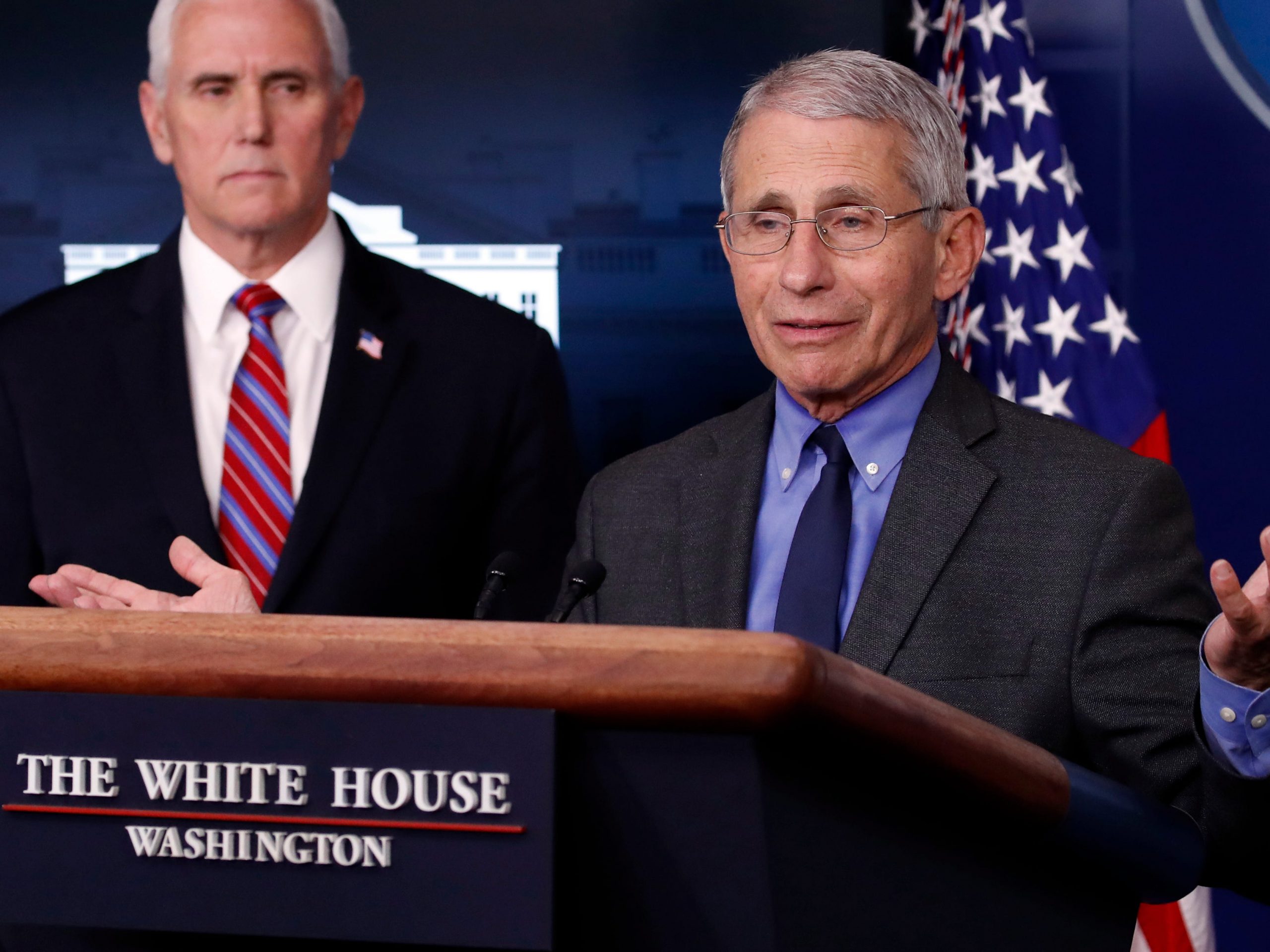
AP Photo/Alex Brandon
- A COVID-19 vaccine could be available to all Americans as early as April 2021, Dr. Anthony Fauci, the US’ leading infectious-disease expert, told CNN Tuesday.
- Authorities will likely offer a COVID-19 to frontline healthcare staff first, he said, followed by the elderly and other vulnerable people.
- But he expressed concerns that not everyone may want to get vaccinated as soon as a vaccine is available. Convincing people to get the vaccine could take months, he warned.
- On Monday, Pfizer announced that its vaccine candidate had succeeded in the final stage of clinical trials, marking a major milestone in the race for a vaccine.
- Visit Business Insider’s homepage for more stories.
Every American could have access to a COVID-19 vaccine before the end of April 2021, Dr. Anthony Fauci, the nation’s leading infectious-disease expert, told CNN Tuesday.
On Monday, Pfizer announced that its coronavirus vaccine succeeded in the final stage of clinical trials, marking a major milestone in the race for a vaccine. The vaccine is 90% effective at preventing COVID-19, the drugmaker said.
Without mentioning Pfizer specifically, Fauci predicted authorities will begin offering a vaccine as early as late November, and that frontline healthcare workers would get it first.
“It is likely, though the final determination has not been made, that healthcare providers who put themselves in harm’s way to take care of individuals will be of the highest priority,” he said.
After this, the elderly and the vulnerable will be vaccinated, followed by other key workers. The vaccine will then be rolled out to the general population, Fauci said.
"We're talking probably by April, the end of April," Fauci said.
His prediction echoed comments made the same day by Alex Azar, secretary of Health and Human Services, who said "all Americans who would want to take a vaccine" would be able to by late March or early April 2021.
However, Fauci's views differed from Azar's on the order of vaccination. While Fauci said frontline healthcare workers would be first in line, Azar said nursing home residents would get the vaccine in December, followed by first responders and other frontline staff in January.
Fauci also said he was worried that not everyone may want the vaccine. Anti-vaxxers have spoken out against efforts to develop a vaccine since the start of the pandemic.
"One of the things we were concerned about ... was that we have a lot of people in this country who may not want to get vaccinated right away."
It may take "well into" the second and third quarters of the year "to finally get people convinced to get vaccinated," he told CNN.
On Tuesday, Fauci also called the results for Pfizer's coronavirus vaccine "impressive."
"I'm going to look at the data, but I trust Pfizer, I trust the FDA," he told MSNBC.
Pfizer won't decide who gets the vaccine first — that's up to a group of scientists, experts, and authorities, Fauci said.
The Centers for Disease Control and Prevention (CDC) has the final say, he said, following guidance from its Advisory Committee on Immunization Practices (ACIP).
The CDC will work alongside the non-governmental National Academy of Medicine, he added.
A vaccine would "have a major impact on everything that we do with regard to COVID," Fauci said Monday.
